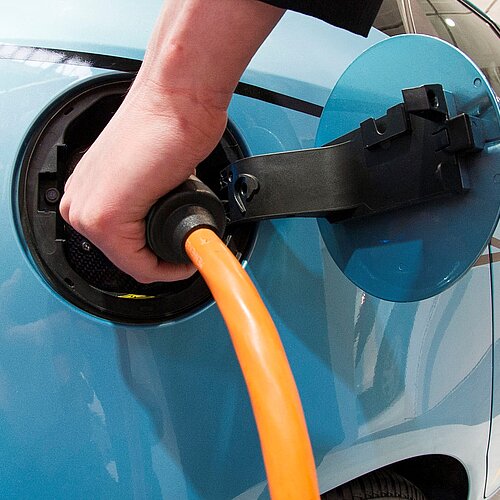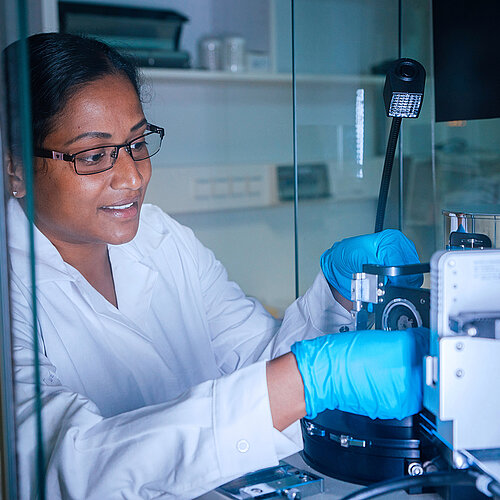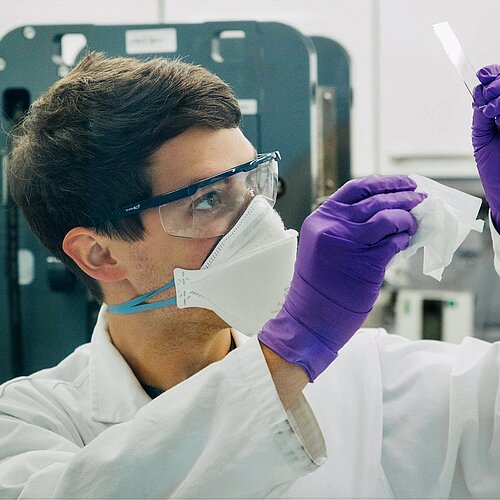Politics & Media

Batteries & energy transition
Batteries play a central role in the energy transition and for the transport sector. Energy from renewable sources - such as wind and sun - must be stored temporarily to make sure that it is available at any time. Efficient solutions to this issue are offered by batteries that can store electricity temporarily and release it again, and with comparatively low energy losses. The importance of compact home storage units in private households or larger neighbourhood storage units in residential areas is growing steadily. At the same time, batteries have enabled the emergence of e-mobility. Over the last 15 years, developments in battery research and production engineering has increased the range of electric cars from around 300 to 600 kilometers.
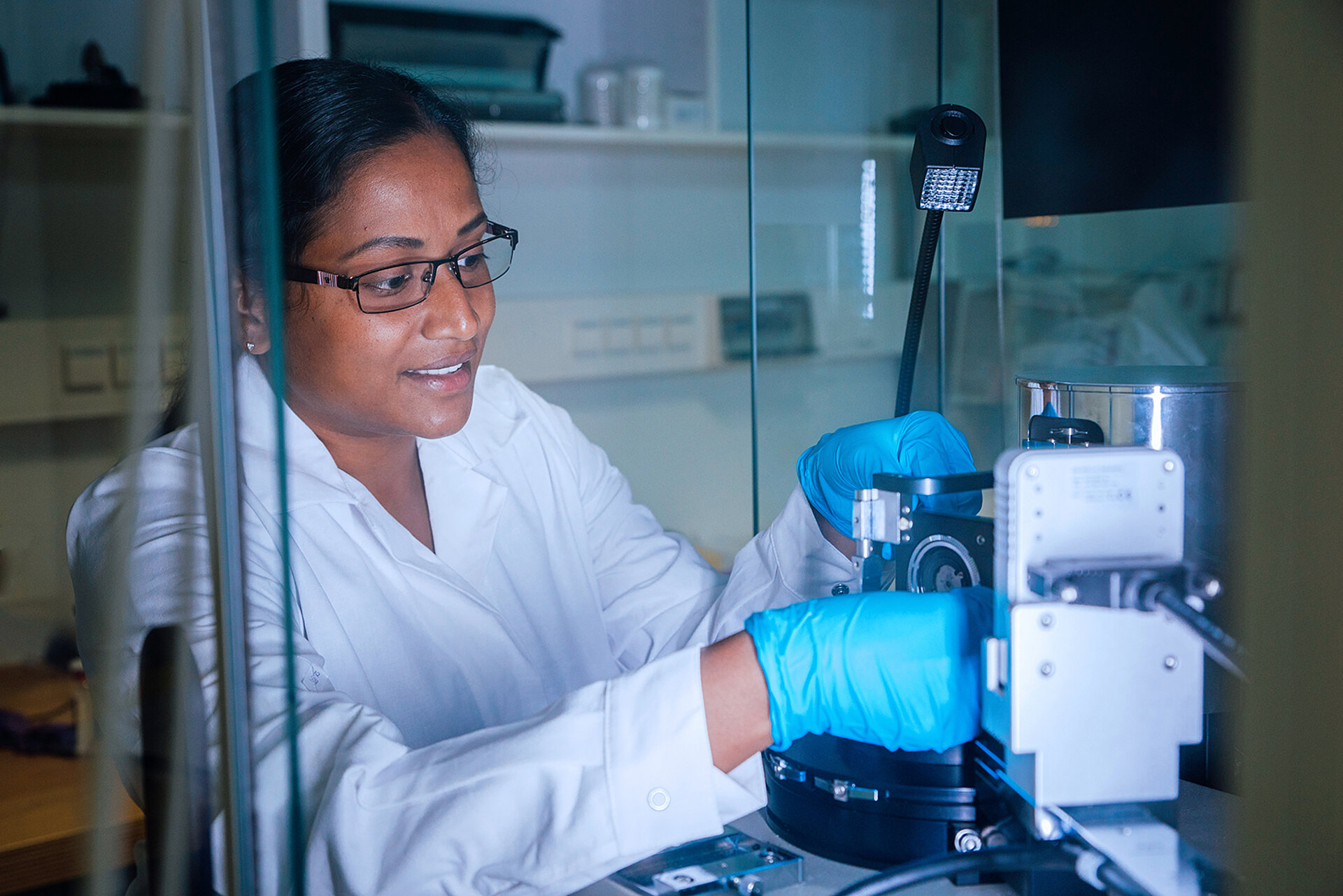 Tanja Meißner
Tanja Meißner
Sustainable batteries
Lithium-ion batteries are currently the most powerful batteries in terms of the available electrical energy per volume and weight of the battery. However, the chemical elements contained in them cannot be used sustainably in the medium and long term. The extraction of the components such as cobalt, graphite and lithium entails political, ecological and economic risks. The European Commission even fears supply bottlenecks due to resource scarcity and the uncertain political situation in some countries with large deposits. Moreover, in many cases cobalt mining takes place under inhumane conditions and is associated with high environmental impacts. For these reasons, our battery researchers are developing more sustainable alternatives that no longer rely on lithium and other critical materials. Instead, they are based on elements such as sodium, magnesium, calcium, aluminium or chlorine. Such so-called post-lithium batteries, in addition to improved sustainability, have the potential to store more energy, be safer and offer a more cost-effective option for various mass applications.
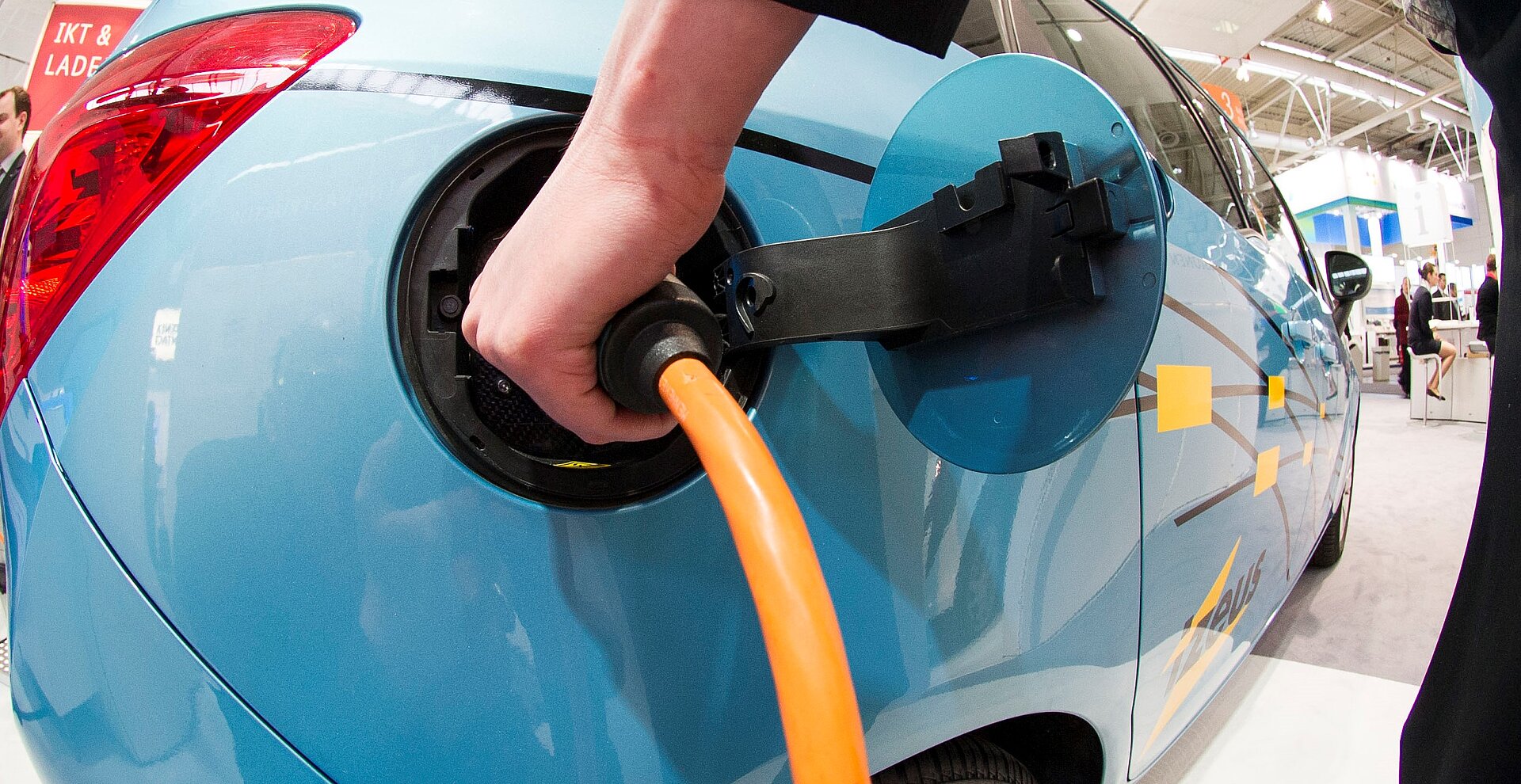 KIT
KIT
How is battery research done?
To improve applications such as stationary home storage, electric cars, and smartphones, their batteries must also be better understood and further developed. Battery research is an interdisciplinary field in which chemists, physicists, materials scientists, and engineers work closely together. Their aim is to build batteries that store more energy and are lighter, more durable, more sustainable and less expensive than conventional lithium-ion batteries. Battery researchers work in the lab to find the perfect recipe for new materials using dozens of chemical elements and various processing and synthesis techniques. The smallest details, such as varying the drying process of a battery electrode or replacing a binder, can have an enormous impact on the charging and discharging process. Once a promising combination is found, the battery is assembled and tested at different temperatures in thousands of charging and discharging cycles. In addition to the experimental work in the laboratory, the researchers use elaborate computer models to try to understand the processes on a battery in order to draw conclusions for real applications.
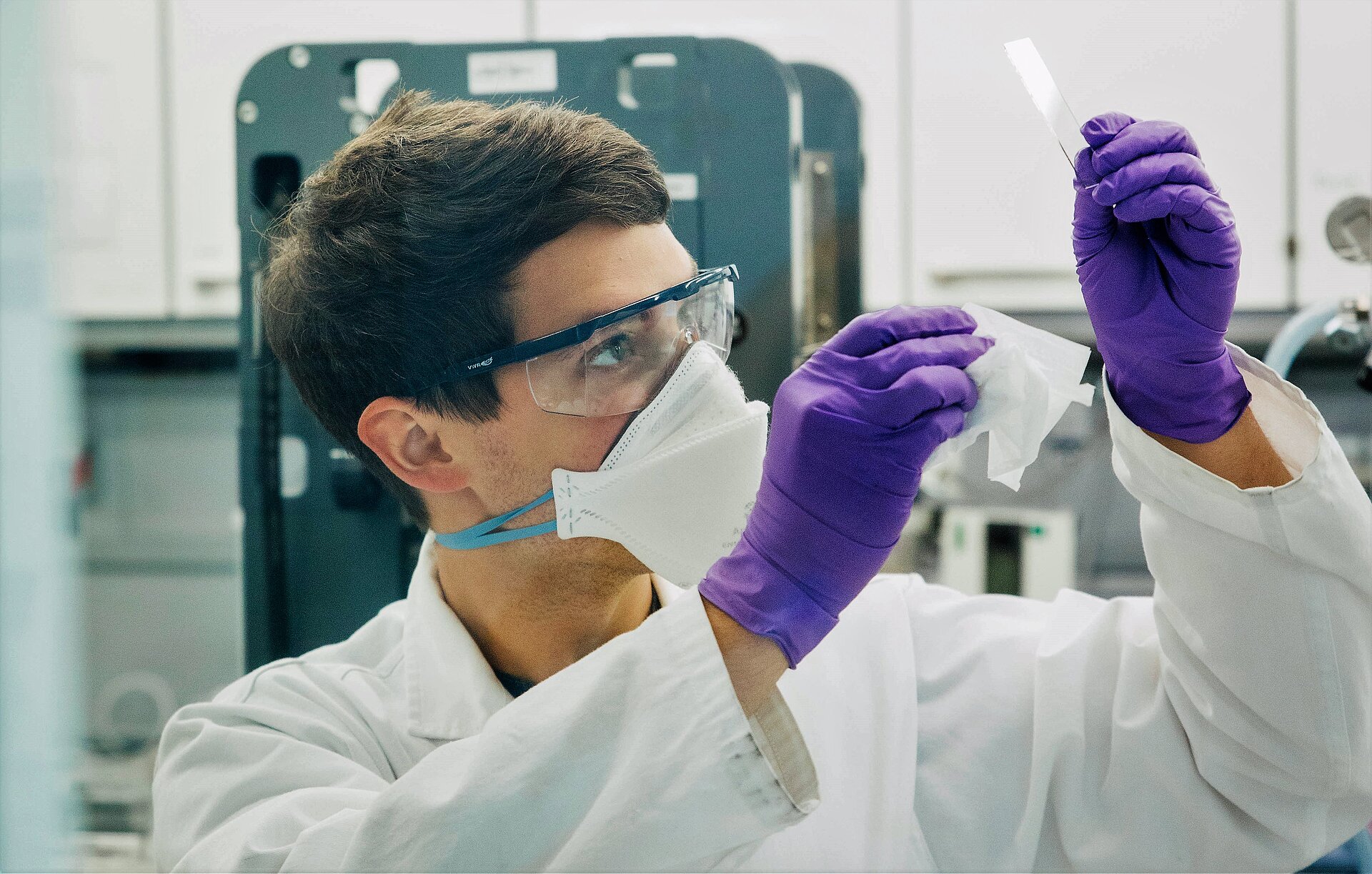 Fritz Beck
Fritz Beck
Press Releases
Roadmap for Battery Research in Europe - 09/04/2020
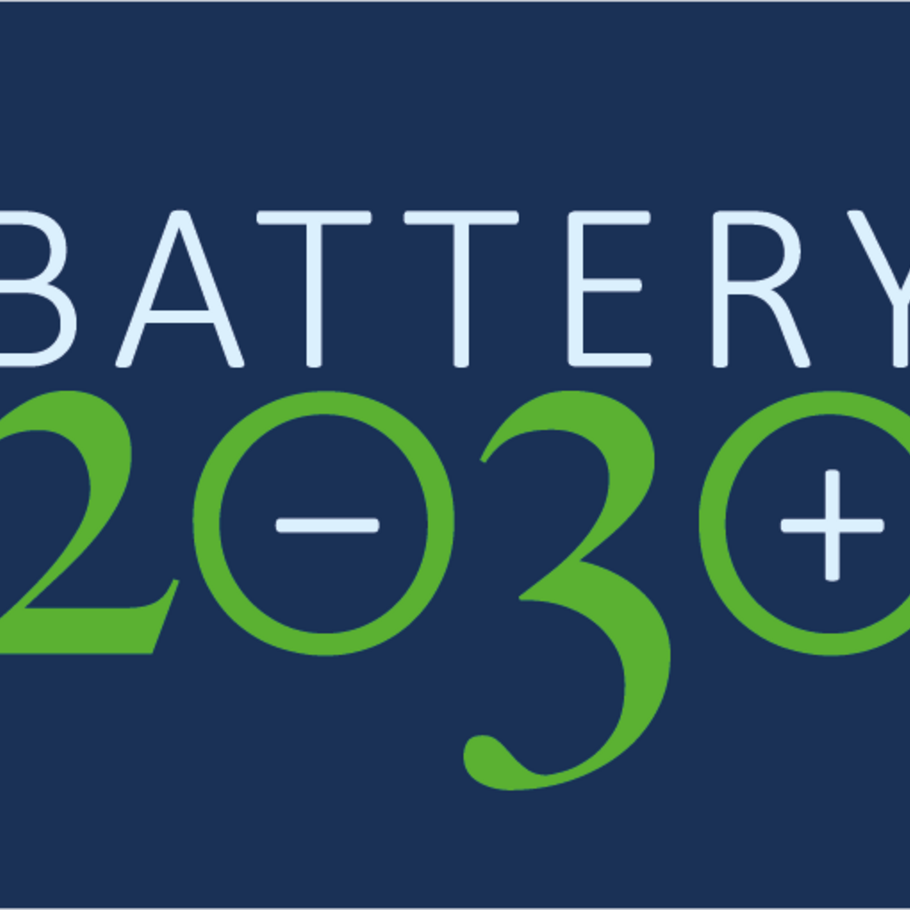
The European Research Initiative BATTERY 2030+ Presents Goals – Research Platform CELEST with KIT, Ulm University, and ZSW Participates
To develop tomorrow’s batteries, partners from science and industry all over Europe have launched the research initiatve BATTERY
2030+. Now, a roadmap defines the milestones in more detail: A joint platform for the development of materials with the help of artificial intelliegence (AI), networked sensors and selfhealing technology for batteries, and sustainable production and recycling processes.
Festive launch of 'excellent' energy research - 26/03/2019
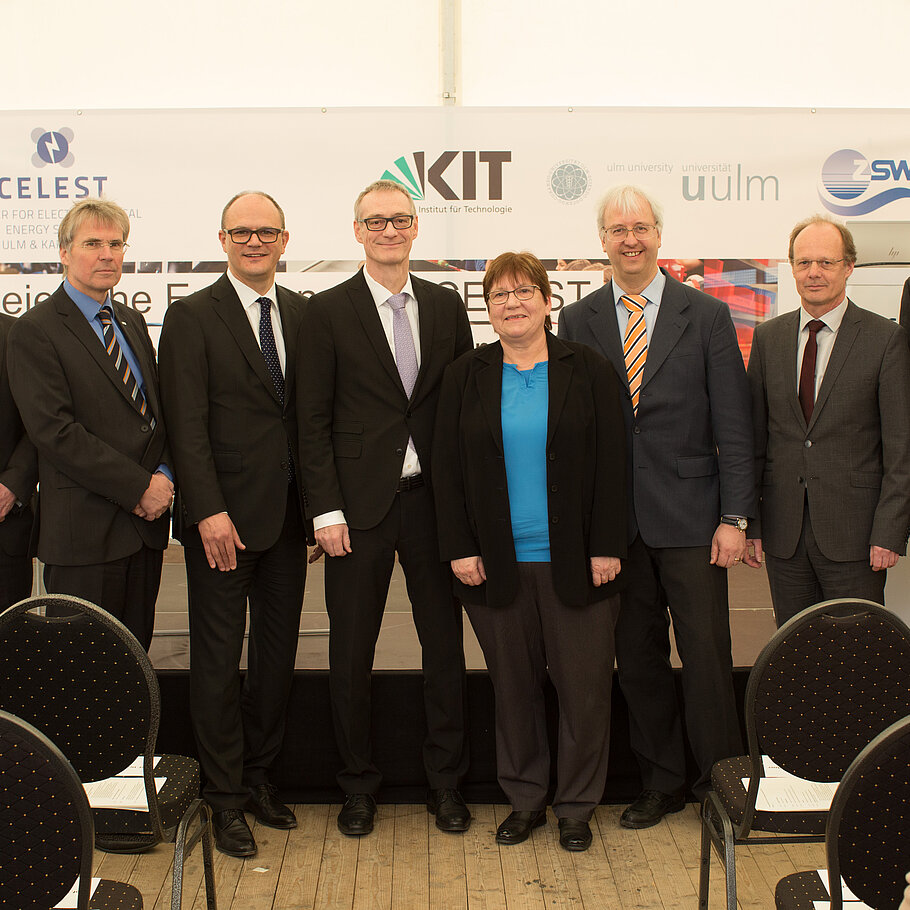
Research platform CELEST and Cluster of Excellence POLiS inaugurated
Germany's largest electrochemical energy research platform was officially launched today, Tuesday, 26 March: At the Center for Electrochemical Energy Storage Ulm & Karlsruhe (CELEST), researchers from various disciplines are developing high-performance and environmentally friendly energy storage systems – which are urgently needed for a successful energy revolution and climate-friendly electric mobility. State Secretary of the Federal Ministry of Education and Research (BMBF), Christian Luft and head of the Ministry of Science, Research and the Arts Baden-Württemberg, Ulrich Steinbach, attended the inauguration ceremony at the Helmholtz Institute Ulm to honour the platform's first outstanding success: In the highly competitive Excellence Strategy of the federal and state governments the partners acquired Germany's only Cluster of Excellence in battery research.
Europe-wide Research for Future Batteries - 28/02/2019
European Initiative BATTERY 2030+ Brings Together Leading Science Institutions
To successfully implement the energy transition and to store regenerative energy, better batteries are required. The European research initiative BATTERY 2030+ brings together leading scientists and companies from all over Europe to achieve major
progress in battery science and technology. It is scheduled for a duration of ten years. The preparation project for BATTERY 2030+ will start in March. Karlsruhe Institute of Technology (KIT) is a partner of this consortium.




